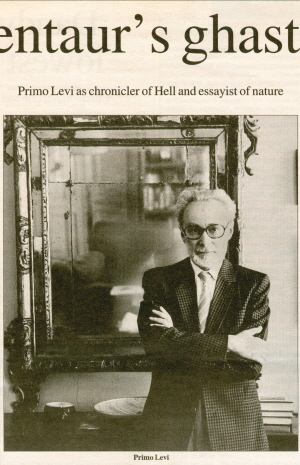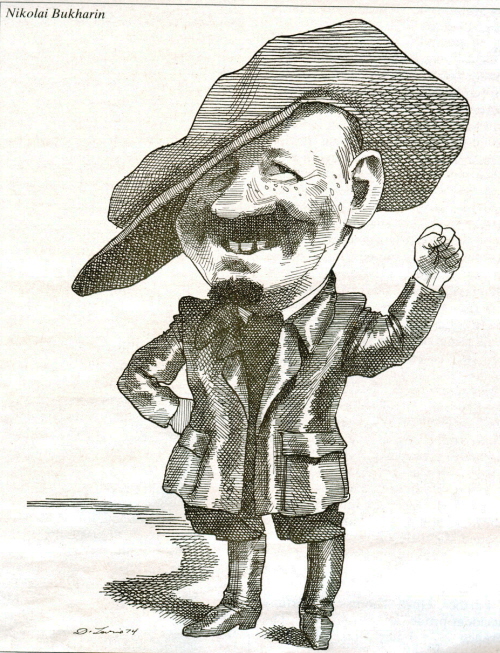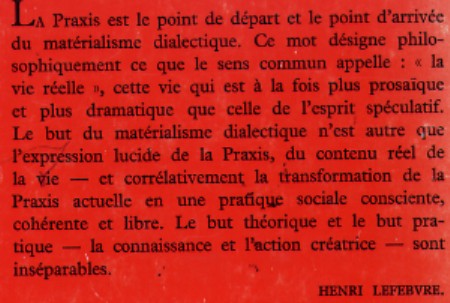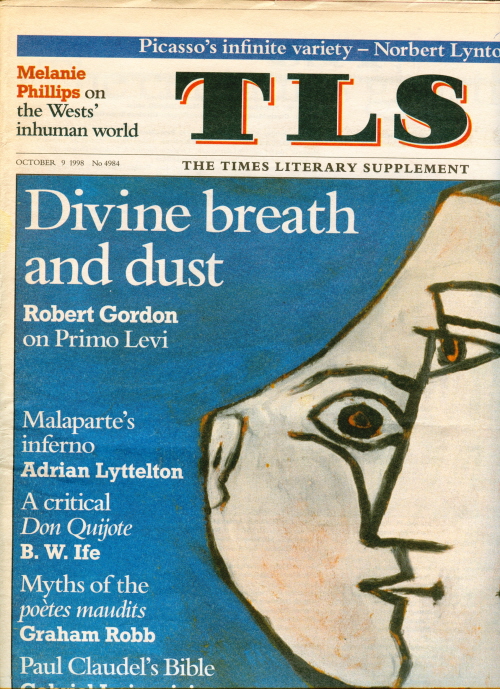|
Karl Schlagel
REVOLUTION ON MY MIND: WRITING A DIARY UNDER STALIN
by Jochen Hellbeck.
Harvard, 436 pp., £19.95, May
2006,9780674021747
Note:
Hôm qua vào tiệm sách ngày
boxing day thấy quyển Les
Chuchoteurs của Orlando Figes - định
mua tặng bác làm quà Noel nhưng thấy số trang : 800 thì dội lui, bác
còn thì
giờ đâu mà đọc, sách lại in chữ nhỏ.
Thiệt là buồn khi đọc băng in
rời ngoài quyển sách lời của Emmanuel Carrère : Quyển sách này thật
hay, Figes
đặt tên lại cho người chết, cho người bị xóa tên. Đối với chúng ta đó
là những
câu chuyện, nhưng với họ, đó là cả cuộc đời.
Avec ce livre magnifique,
Figes redonne un nom aux morts, aux effacés de la mémoire. Pour nous ce
sont
des histoires, eux c’était leur vie.
*
Tính thẩy tờ London Review of Books,
16 Tháng Tám, 2007 [đúng sinh
nhật Gấu, tếu thế!], vô lò sưởi, vội nín lại, vì thấy bài Đời lại tái sinh, điểm
cuốn "Cách mạng ở trong đầu: Viết nhật ký dưới thời Stalin".
Cũng một
dòng với Những Kẻ Nói Thầm,
của Orlando Figes.
Gấu đâu còn thì giờ mà đọc!
Thôi thì đọc bài này, thay
cho cuốn sách 800 trang chữ nhỏ.
Tks, and Happy New Year to both of U, O and K.
NQT
*
Sống với VC, cấm nghĩ, theo Sến Cô Nương.
Cái chuyện viết nhật ký, lại càng cấm!
Một số
báo, những ngày đầu.
Bài viết về Primo Levi cho mục Tạp Ghi, báo Văn Học của NMG:
Đây là một người,
hay là Bi kịch của một người lạc quan
chôm từ
số báo này.
Cũng đã tính thẩy vô lò sưởi, lại tiếc!
Cái tít mới tuyệt làm sao: Divine Breath and Dust:
Hơi thở thì thánh thiện như
của BHD
Bụi trần thì như thằng cha Gấu!
Ui chao, tẩu hoả nhập ma đến
nơi rồi!
Cái tít bên trong tờ báo, cũng
thật tuyệt:
The centaur’s ghastly tale (1)

(1) The
centaur’s
ghastly tale: Câu chuyện khủng
khiếp của con
quái vật.
Centaur: Quái vật, ở đây
được dùng để làm bật ra từ Century, thế kỷ, theo Gấu!
Primo Levi như là một ký sự
gia về Địa Ngục, và tiểu luận gia về thiên
nhiên.
These volumes are
revisionist
in the best sense of the term. We might say schematically that they
offer an
image of Levi as not only a "Dante of our time" (as a recent American
study put it), but also a Montaigne of our time; not only the
chronicler of modern
Hell, but also the probing and mature essayist of the self, human
nature and
nature itself. Even in the preface to his most "infernal" book, If
This Is a Man, Levi's ambition is measured: "[this book] sets out to
provide some material for a calm study of certain aspects of the human
mind." Primo Levi deserves his place in the century's canon not only
for
his accidental and awful encounter with history's whirlwind, as he
called it,
but also for that calm and not so calm study of the human mind, within
and
beyond testimony.
Tuyệt!
*
Một
trong những chương của cuốn sách viết về "Sự hung dữ vô dụng". Những
chi tiết về những trò độc ác của đám cai tù, khi hành hạ tù nhân một
cách vô cớ,
không một mục đích, ngoài thú vui nhìn chính họ đang hành hạ kẻ khác.
Sự hung dữ
tưởng như vô dụng đó, cuối cùng cho thấy, không phải hoàn toàn vô dụng.
Nó đưa
đến kết luận: Người Do thái không phải là người.
(Kinh nghiệm cay đắng này, nhiều
người Việt chúng ta đã từng cảm nhận, và thường là cảm nhận ngược lại:
Những người
CS không giống mình. Ngày đầu tiên đi trình diện cải tạo, nhiều người
sững sờ
khi được hỏi, các người sẽ đối xử như thế nào với "chúng tôi", nếu
các người chiếm được Miền Bắc. Câu hỏi này gần như không được đặt ra
với những
người Miền Nam, và nếu được đặt ra, nó cũng không giống như những người
CSBV tưởng
tượng. Cá nhân người viết có một anh bạn người Nam ở
trong quân đội. Anh chỉ mơ, nếu
có ngày đó, thì tha hồ mà nhìn ngắm thiên nhiên, con người Hà-nội, Miền
Bắc. Lẽ
dĩ nhiên, đây vẫn chỉ là những mơ ước, nhận xét hoàn toàn có tính cách
cá nhân).
*
Primo Levi
deserves his place in the century's canon not only for his accidental
and awful
encounter with history's whirlwind, as he called it, but also for that
calm and
not so calm study of the human mind, within and beyond testimony.
Primo Levi xứng đáng
với chỗ ngồi của ông, theo ‘tiêu chuẩn chọn lựa’, của thế kỷ, không
phải chỉ vì
cuộc gặp gỡ tình cờ, và đáng sợ với ‘cơn gió lớn’ [chữ của ông] của
lịch sử, nhưng
còn là vì cái nhìn trầm ngâm, và cũng không trầm ngâm cho lắm, về cái
đầu của
con người, ở trong vòng, và vượt quá khỏi, chứng liệu.
'Life has been reborn'
Karl Schlagel
REVOLUTION ON MY MIND:
WRITING A DIARY UNDER STALIN
by Jochen Hellbeck.
Harvard, 436 pp., £19.95, May
2006,9780674021747
'THEY ARE BURNING memory.
They've been doing it for a long time ... I go out of my mind when I
think that
every night thousands of people throw their diaries into the fire.' The
Soviet
writer Yuri Tynianov said this to a colleague in Leningrad in the late 1930s. They
were
standing at a window looking at the air outside, which was filled with
a fine
ash. We associate diaries with individualism, intimacy, privacy, with
unrestricted reflection and deliberation. But from a Communist
perspective, to
keep a diary was to withdraw from social responsibility; it was a form
of
apolitical, even asocial behavior.
But
even when the hysterical mass mobilization against 'enemies of the
people',
'spies' and 'other criminal elements' was at its peak, diaries were
being kept
and preserved. A few examples were published in the years of thaw and
de-Stalinization: the diary of Nina Kosterina, for example, was
published in
the 1960s, and that of Julya Piatnitskaya, the wife of Osip Piatnitsky,
a
leading Communist of Lenin's generation who was executed in 1938, found
an
audience via the samizdat of the 1980s. But no one had any idea that so
many
more diaries existed, recording the experiences and thoughts of
thousands of
people, most of them unknown.
And
then in the early 1990S Jochen Helllbeck, a young student at Columbia University,
went to do research in Moscow.
The Soviet Union was changing every day, as new newspapers appeared,
archives
and documents were declassified, and the country experienced a 'happy
summer of
anarchy' as it learned to enjoy its new-found freedom of speech. It was
a
wonderful moment for historians. Strolling through Moscow, Hellbeck was attracted by a
sign
saying People's Archive. He went in and discovered that thousands of
papers and
memoirs had been deposited there, from all levels of society and all
parts of
the country. Written in exercise books or on the backs of official
forms, they
had escaped being turned into ashes.
In Revolution on My Mind Hellbeck
discusses
the diaries of four individuals. The first is Zinaida Denisevskaya, a
member of
the pre-Revolutionary Russian intelligentsia. She kept a diary from
1900, when
she was 13 years old, until her death in 1933. In the year of the
October
Revolution she was a schoolteacher in Voronezh,
a sensitive and well-educated woman who felt isolated from the 'masses
of the
people'. Vorronezh was in Russia's
agricultural heartland and thus affected by the forced collectivization
of the
late 1920S and the Great Famine of the early 1930s. Denisevskaya is
conscious
of the atrocities and absurdities that surround her, but nevertheless
tries to make
the 'truth' of the Party agree with her own observations and
experiences. 'In
its fundamental ideas, the Party is now correct and I am forcing myself
to
overlook petty details,' she notes on the eve of collectivization. 'One
must
not confuse the particular with the general. It is very difficult to
maintain a
broad view all the time, especially for a non-Party member.' She sees
herself
as suffering from the shortcomings of the 'estranged intelligentsia'
and is
filled with desire to join 'the masses'. Finally, she puts herself and
her
class on trial and affirms her own metamorphosis: 'How much has changed
over
these 13 years, both within me and around me! Life has been reborn and
I have
been reborn.' In the end, she came to regard the Soviet regime as the
sole
legitimate repository of the core values of the intelligentsia: social
commitment, mass education, the enlightenment of the people.
The
second diarist here, Stepan Podlubny, faced a different problem. One of
millions of peasants who were swept into the cities and onto
construction sites
during collectivization and the period of accelerated
industrialization, he has
to find his way as the son of a 'kulak' and 'class enemy'. To survive,
to
escape his 'class origins', he must turn from a 'wolf in sheep's
clothing into
a sheep'. Podlubny kept a diary from 1931 until 1939 -with a short
break in
1937, the year of the Great Terror - and from 1941 until he died in
1998. (His
diary was published in German with a commentary by him several years
ago.)
The
entire diary is an exercise in self-observation, as Podlubny works on
and overcomes
his old self. He knows what happened in the villages during the
deportations of
millions of peasants and in the Great Famine. But he is merciless:
All
in all, what's happening is awful. I don't know why, but I don't feel
sympathy
for this. It has to be this way, because then it will be easier to
remake the
peasant's smallholder psychology into the proletarian psychology that
we need.
And those who die of hunger, let them die. If they can't defend
themselves
against death from starvation, it means that they are weak-willed, and
what can
they give to society?
Hellbeck
met Podlubny before he died. He also had an encounter with the third of
his
diarists, Leonid Potemkin. A retired deputy minister of geology of the Soviet Union, Potemkin could look back on a long
and
successful career. Born in 1914, in a village in the Kama River
region, into a petit bourgeois family, he started writing his diary in
1928,
while he was still at school. Of all the diarists his attitudes and
procedures
are the most systematic, even programmatic. He works on his self as
though polishing
a diamond. He is a model vydvishhenets,
the protagonist of upward mobility in the 1930s: a young, cultured,
working-class
man in a white shirt, suit and tie, cultivating the manners of the new
establishment, writing about Tchaikovsky and reciting Heine. 'I feel,'
the
young Potemkin wrote, 'that I will (one day) stand before the court of
society,
where the details of my life will be examined. I feel that I am under
inspection.' For him, as for the historian, his passage from poor
villager to
qualified engineer is the paradigmatic realization of the 'Soviet
dream'.
The
fourth diary is, even in the context of these extraordinary documents,
unique
and at times shocking. Alexander Afinogenov was one of the most
successful
Soviet playwrights of the 1920S and 1930S. The borders between fiction
and fact
are blurred in his diary, which sometimes seems to function as a
notebook for
his future plays, and which covers, in fragments, the period between
1926 and
1941.
Born
in 1904, into the family of a railway employee, Afinogenov was, in his
most
successful years, close to Maxim Gorky and the inner circle of power -
he met
Stalin several times. But in 1937 he was expelled from the Party; some
of his
colleagues (Vladimir Kirrshon, for instance) were killed. Despite this,
he
confesses that the year of the Great Terror was the year of his rebirth
that
the time off ear resulted in his most productive thinking and writing.
'For
him,' Hellbeck says,
the
terror induced a veritable explosion of autobiographical writing. The
Stalinist
purge emerges in his case not as an expression of absolute estrangement
between
state and citizens, but as an intense synergetic link between
individuals and
the state, in which the respective agendas of social purification and
individual self-purification fused ... As the Stalinist regime
increased its
demands for the unmasking of Trotskyist enemies, Afinogennov by means
of his
diary proceeded to scrutinize and cleanse his soul.
In
1938 Afinogenov was reinstated as a Party member. He was convinced that
the
Great Purge was necessary and he wanted to be a participant in it, and
an
active one, prepared to denounce even himself. He saw Stalin as the
architect
of a new world and himself as a bricklayer or, rather, as his master's
inkwell.
Afinogenov died during an air-raid in October 1941, in the building of
the
Central Committee of the Communist Party in Moscow.
All
four diarists express the sense that they live in 'historic times'
worthy of
exact documentation and analysis. They are part of a tradition with
strong
roots in Russian culture, especially in the history of the
intelligentsia, with
its cult of self-perfection and ethos of serving the people. After the
Revolution, the combination of an inferiority complex and a sense of
mission to
represent the nation's conscience came to extend beyond the
intelligentsia. A
new mythos emerged, orchestrated again by intellectuals, that of the
New Man or
Hero, as Gorky
put it.
But
more important was the impact of the huge social upheavals that began
with the
First World War, the Revolution and the Civil War, and continued with
the mass
migrations, famine and violent clashes in a the countryside. Social
identities
disintegrated and were reconfigured by the phenomenon of a whole empire
walking', as the historian Peter Gatrell has described it. The n cities
were overcrowded
with peasants who had lost their stable way of life, their social
position,
their framework of values. These e, diaries show the struggle involved
in
negotiating the extremes of the epoch, in creating a self able to live
simultaneously in the village and in the urban world, in pre-modern and
revolutionary times. The destruction of 'normality' and the permanent
state of
emergency put everyone under almost unbearable pressure, subject to a
violent
and ruthless regime which created entirely new conditions for the
constitution
of a self The classification of social groups - workers, intellectuals,
peasants - proved to be more or less fictitious. As Hellbeck writes,
The
exploding political paranoia of the 1930S, the massive increase in
suspicion
against supposed enemies of the people, also expressed a crisis induced
by the
breakdown of the traditional Marxist tool of class analysis in
evaluating the
individual. Where there were no more alien classes to point to, the
proclivity
to demonize existing obstacles on the road to socialism became
overwhelming.
As
Sheila Fitzpatrick has shown, when the notion of class no longer makes
sense,
and class ascription becomes arbitrary, the desire to construct an
identity, to
make the New Man, becomes powerful. Even such a convinced Communist as
Julya
Piatnitskaya felt the ground shift after the arrest of her husband.
'Who is
he?' she wrote in her diary. Her first inclination was to trust him;
after all,
they had been married for 17 years. But this would mean that the Party
was at
fault. 'Obviously I don't think that. Obviously Piatnitsky was never a
professional revolutionary, but a professional scoundrel - a spy or
provocateur.' Hellbeck comments that
the
diary served as a tool by which she could release her poisonous
thoughts and
thereby regain the assured and unified voice of a devoted
revolutionary. Her
task was to 'prove, not for others, but for yourself ... that you stand
higher
than a wife, and higher than a mother. You will prove with this that
you are a
citizen of the Great Soviet Union. And if you don't have the strength
to do
this, then to the devil with you.'
Jochen
Hellbeck has opened up a new way into the private inner world of the
Stalin
years, a world to which former schools of Soviet history didn't pay
much attention.
These diaries weren't written in 19th century Paris
or Fin-de-siècle Vienna,
in the semi-public space of the Ringstrassen-Cafe or the Parisian
salon. The
permanent flux in what Moshe Lewin has called a 'wind sand society' -
one of
crowded communal apartments with dozens of inhabitants, endless queues
outside
department stores or NKVD offices, an atmosphere of omnipresent fear
and
suspicion - meant that the formation of subjectivity took place in very
different conditions.
Maybe
this will be one of the main implications of Hell beck's discovery.
There can't
now be a cultural history of the 20th century that ignores the
experience of
forging the self under the conditions of Communist - and especially
Stalinist-
rule. It took almost half a century for the diaries kept by the German
Jew
Victor Klemperer between 1933 and 1945 to be discovered and edited, and
more
than half a century to excavate Poddlubny's and Afinogenov's diaries.
Together
they give us a rough idea of what happened to the individual during the
'Age of
Extremes'. *
Đừng đốt, có lửa ở
trong đó… “Chúng là những hồi ký đang cháy. Họ đã từng làm điều này từ
lâu rồi…
Tôi nghĩ mình khùng, khi cho rằng, đêm nào cũng có hàng ngàn người ném
những cuốn
nhật ký của họ vào lửa”. Nhà văn Xô viết, Yuri Tynianov, nói với một
đồng nghiệp ở Leningrad
vào cuối thập
niên 1930. Họ đang đứng ở cửa sổ, nhìn ra bên ngoài, không khí tẩm đẫm
mùi tro
tinh khiết.
Chúng ta coi, nhật ký là những gì liên quan tới chủ nghĩa cá nhân,
cái riêng tư, thầm kín, với những suy tưởng không bị kìm nén. Viết
trong tình
trạng thoải mái, muốn viết gì thì viết. Nhưng, nhìn từ viễn quan
Cộng Sản, giữ, viết nhật ký, là quăng trách nhiệm xã hội vào thùng rác,
một hình
thức vô chính trị, apolitical, có thể nói, một ứng xử cà chớn, vô xã
hội,
asocial. Tuy nhiên, ngay cả vào
những lúc đỉnh cao thời đại của cơn điên cuồng, khùng dại của đám
đông,
con mắt của nhân dân nhìn xó xỉnh nào cũng thấy kẻ thù, gián điệp,
những
trang nhật ký vẫn được gìn giữ, cất giấu, bảo vệ. Một vài cuốn như vậy
đã được
xuất bản trong thời kỳ băng tan và 'de-Stalinization': nhật ký của Nina
Kosterina, đã được xb vào thập niên
1960, và của
Julya Piatnitskaya, vợ của Osip Piatnitsky, một
ông trùm CS thời Lenin, bị hành quyết vào
năm 1938, cuốn nhật ký này đã tìm ra độc giả của nó bằng con đường
chui,
dưói hầm,
[samizdat], vào thập niên 1980.
Nhưng chẳng ai có một ý nghĩ, có bao nhiêu
những cuốn
nhật ký như vậy, ghi lại kinh nghiệm và tư tưởng của
hàng ngàn người, hầu hết là
vô danh, chẳng ai biết tới.
Tại sao
họ tin tưởng vào
Stalin?
Why
They Believed in Stalin
By
Aileen Kelly
Tear
Off the Masks!
Identity
and Imposture in Twentieth-Century Russia
by
Sheila Fitzpatrick
Princeton
University Press,
332 pp., $24.95 (paper)
Revolution
on My Mind:
Writing a Diary Under Stalin
by
Jochen Hellbeck
Harvard University Press, 436 pp., $29.95
In a
work published after he
was expelled from the Soviet Union,
the
dissident writer Alexander Zinoviev depicted a new type of human being:
Homo
sovieticus, a 'fairly disgusting creature' who was the end product of
the
Soviet regime's efforts to transform the population into embodiments of
the
values of communism. In recent years the term has acquired a more
neutral
sense, as material emerging from the archives of the former Soviet
Union -
confessions, petitions and letters to the authorities, personal files,
and
diaries - has given scholars new insights into the ways Russians
responded to
the demand to refashion themselves into model Communists.
NYRB
April 26, 2007

Nikolai
Bukharin by David
Levine
Trong một tác phẩm, viết sau khi bị tống xuất ra khỏi nước mẹ Liên Xô,
nhà văn
ly khai Alexander Zinoviev đã mô tả con người mới xã hội chủ nghĩa, Homo
sovieticus, ''một sinh vật hơi bị ghê tởm', sản phẩm sau cùng của
tất cả
những cố gắng của chế độ Xô Viết nhằm chuyển hóa nhân dân nhập thân vào
những
giá trị ưu việt của Chủ Nghĩa Cộng Sản.
Những năm gần đây, do những nguồn tài liệu mới, con người mới XHCN [thì
cứ nói
đại, con bọ] Homo Sovieticus đó, đã có một cái ý nghĩa trung
tính hơn,
và chúng ta có được những tia sáng mới mẻ, về cung cách, đường hướng
người dân
Nga đáp ứng với đòi hỏi của nhà nước Xô Viết, trong cái việc đẽo gọt
chính họ,
cho đúng khuôn với cái giường Chủ Nghĩa Cộng Sản.
Lạ làm sao, là, con người mới XHCN đó, có những tiền kiếp, nằm trong
những tầng
sâu hoang vắng của văn hoá Nga trước Cách Mạng. Hiện tượng Chúa Sẩy
Thai đó, đã
được tiên tri, "trù ẻo", từ đời thuở nào, giống như tiền căn của một
thứ cỏ, của một miền đất.
Note: Bản scan
"Ác Mộng", từ báo trong nước, đã được làm lớn ra,
theo
yêu cầu của một độc giả Tin Văn. Thân. Kính. NQT
Tại sao họ tin tưởng vào Stalin?
Không
phải tự nhiên, mà Rubashov,
nhân vật của Koestler trong Đêm giữa Ngọ,
Darkness at Noon, bằng lòng thú tội trước bàn thờ, chấp nhận đủ
thứ tội ác
mà Đảng và Nhà nước phịa ra cho ông, bằng lòng thú tội trước tòa án
nhân dân,
chấp nhận tử vì đạo, Đạo Cộng Sản, cái chuyện, một ông nhà văn bi giờ,
[HKP,
xem talawas], đọc nhật ký của đám Nhân Văn Giai Phẩm, cảm thấy bị tình
phụ, ấy
là vì, cho đến bi giờ, nhân loại cũng chưa "vươn tới tầm, chưa đủ
chín", chưa đồng thuận, chưa chịu giao lưu hòa giải, để mà hiểu thấu
đáo,
thảm họa lớn lao, là thảm họa VC trên toàn thế giới, tức Cơn Kinh
Hoàng, Cuộc
Khủng Bố của Stalin, như Aileen Kelly chỉ ra, trong bài viết nêu trên,
cho dù càng
ngày càng có thêm hồ sơ, chứng liệu.
[... that despite the prodigious increase in documentation on the
mentalities
and motives of those who implemented or colluded with Stalin's Terror,
we are
still far from a consensus on the lessons to be drawn from that great
historical catastrophe.].
Cái câu nói, cái nước ta, cái xứ sở ta, nó vốn như vậy, của me-xừ HNH,
có một ý
nghĩa sâu thẳm hơn nhiều, không phải mới có đây, từ cái hồi, hàng
ngoại, chủ
nghĩa Chủ Nghĩa Cộng Sản, theo Bác Hồ, du nhập Việt Nam.
Có mấy
ông Marx?
Nếu chủ nghĩa Marx, qua cái thực hành của nó, đúng như một trong những
ông tổ
sư lý thuyết của nó, Henri Lefebvre,
diễn tả sau đây, thì có một, và chỉ một mà thôi.
Marxism

Cái
Thực Hành là điểm xuất phát
và điểm tới của chủ nghĩa duy vật biện chứng. Từ này chỉ ra, theo nghĩa
triết
học, điều mà thế nhân gọi là "đời sống thực". Cái đời thực này, thì,
cùng lúc, vừa thô kệch, tầm thường, vừa bi thiết, thê lương, còn hơn cả
những
gì mà thế nhân giả định về nó. Mục tiêu của chủ nghĩa duy vật biện
chứng, không
là cái chi đâu đâu, mà chính là biểu hiện rất ư là sáng suốt về Cái
Thực Hành,
về nội dung thực của cuộc đời.....
*
Ui chao, già rồi, sắp xuống lỗ rồi, BHĐ thì cũng đi trước rồi, và đang
chờ,
đúng lúc đó, đọc những câu sau đây, đã từng đọc trên giường bệnh, trong
lúc chờ
Em, kiếm lý do ra khỏi nhà, chạy vội chạy vàng đến nhà thương Đồn Đất,
Sài Gòn
mà chẳng… cảm khái sao!
Le devenir-philosophie du monde est en même temps un devenir-monde de
la
philosophie, sa réalisation est en même temps sa perte, écrit-il à
l'époque où
il rédige sa thèse de doctorat sur La philosophie de la nature chez
Démocrile et Épicure.
Cái trở nên-triết học của thế giới, thì cùng lúc, là
cái trở nên-thế giới
của triết học, thực hiện nó là lúc mất nó...
Gấu chỉ cần đổi, một hai từ trên đây, là ra ý nghĩa thê lương của cuộc
tình của
Gấu:
Vừa có em là lúc mất em!
*
Ui chao, một, áp dụng thông minh và thiên tài chủ nghĩa Mác vào thực tế
Việt
Nam, một, ngu ngơ và dại khờ vào cuộc tình ngất ngư của "cả một thời,
để
yêu và để chết", trước khi con bọ xuất hiện !
*
Bác cháu ta là nhất, là số một, thưa Bác!
Ác Mộng
Cái câu nói, cái nước ta, cái xứ sở ta, nó vốn như vậy, của me-xừ HNH,
có một ý
nghĩa sâu thẳm hơn nhiều.
|





